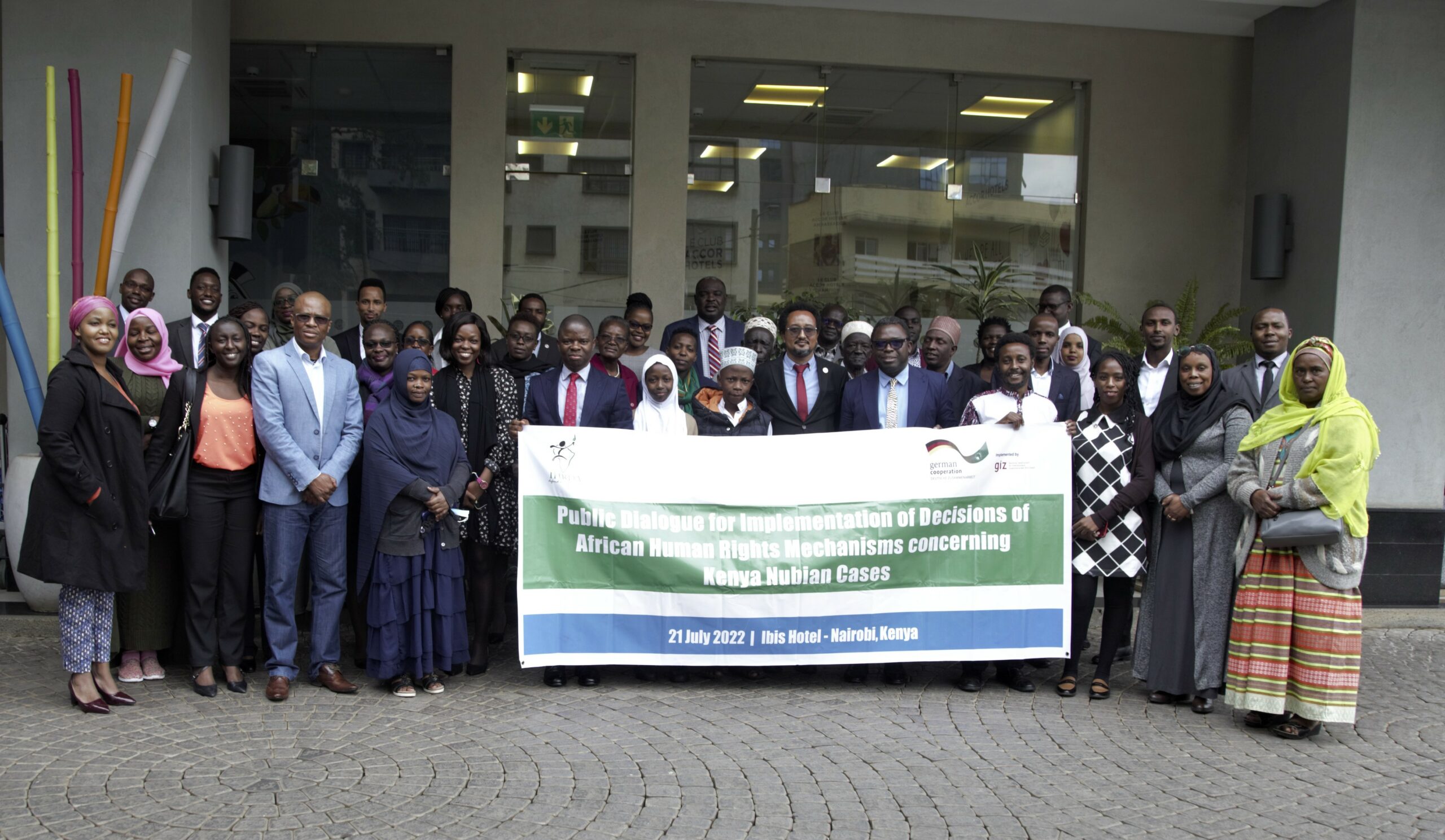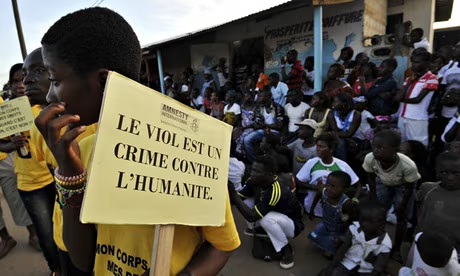Banjul, 22 July 2022: IHRDA has concluded a public dialogue with key stakeholders in Kenya on the implementation of decisions of the African Commission on Human and Peoples’ Rights (ACHPR) and the African Committee of Experts on the Rights and Welfare of the Child (ACERWC) on Kenya Nubian cases.
The event that took place 21 July 2022 brought together representatives of Government institutions, Kenya National Human Rights Commission, members of affected community, civil society organisations (CSOs) and the media, as well as a representative of the ACERWC.
Focusing on Communication 317/06 Nubian community in Kenya v. Kenya decided by the ACHPR in 2015 and Communication 002/2009 IHRDA and Open Society Justice Initiative (on behalf of Children of Nubian Descent in Kenya) v. Kenya decided by the ACERWC in 2011, the dialogue sought to assess level of implementation of the decisions on the said cases, and to advocate and craft strategies for the engagement of all stakeholders towards the full implementation of the decisions.
It should be recalled that the Kenya Nubian cases concern people of Nubian descent whose ancestors had been moved in the early 1900s by the British colonial masters from the Nuba mountains (in today’s Central Sudan) and forced to settle in Kenya. At independence in 1963, Kenya government refused recognizing them as Kenyans for not having an ancestral homeland within Kenya, thus rendering them stateless and depriving them of all the rights and privileges they should enjoy as citizens. With the support of IHRDA and Open Society Justice Initiative, the Kenya Nubian community sought redress before the ACHPR in 2006, and also before the ACERWC in 2009 for the plight of Nubian children. In 2011 and in 2015, the ACERWC and the ACHPR, respectively, ruled in favour of the Plaintiffs, requesting Government of Kenya to recognize their right to Kenyan citizenship and ensure they enjoy all corresponding rights and privileges.
“A major challenge in the African human rights system is the low level of States’ compliance with decisions of mechanisms in the system. We recognize the fact that Government of Kenya has made commendable strides towards implementation of the Nubian decisions. However, our engagement with stakeholders in Kenya is a demarche we are experimenting in our drive to boost States’ compliance with decisions of regional human rights mechanisms.” – IHRDA Executive Director, Gaye Sowe, stated.
The Kenya Nubian cases are landmark cases on the right to a nationality in the African human rights system, besides the fact that the children’s case was the first ever decided on the merit by the ACERWC.
The public dialogue falls within the framework of a GIZ-supported project to strengthen compliance of States with decisions of African human rights mechanisms.







